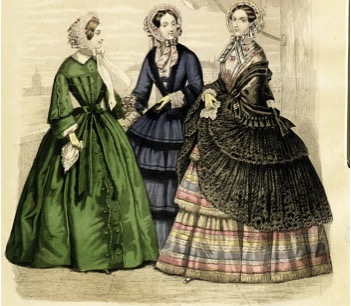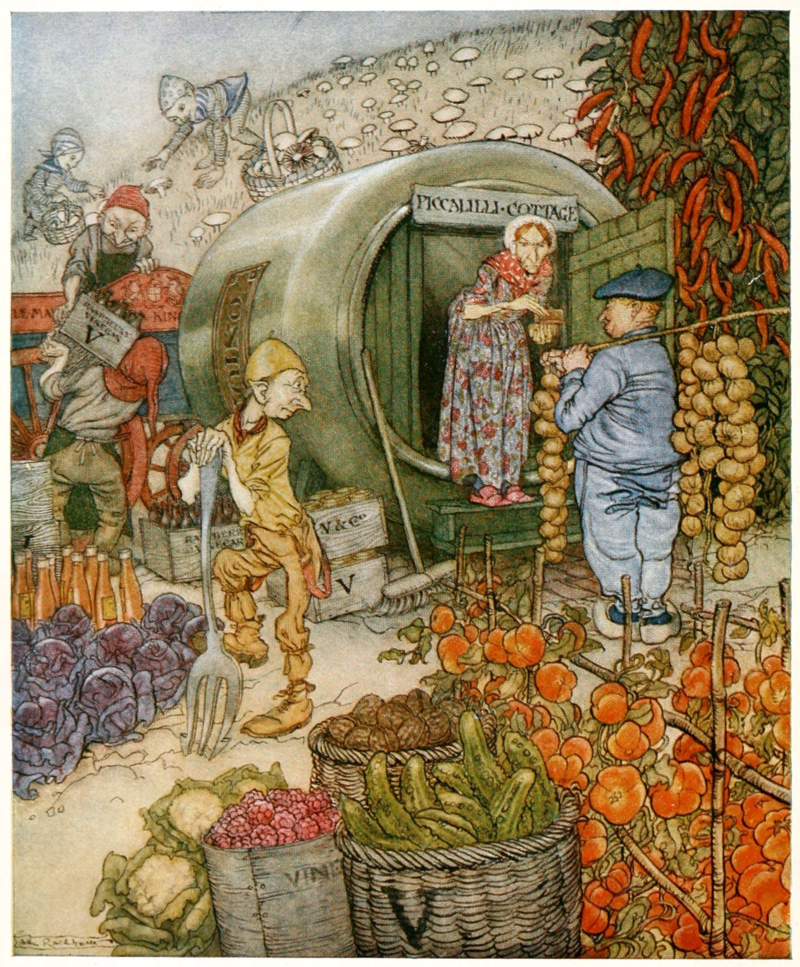 |
| Victorian Ladies, a/k/a Wikipedia |
Other than the fact that our furnace went bad on Boxing Day, and we had a couple of days of Victorian temperatures in the house (50s and 60s) while waiting for parts to arrive. (BTW, now I understand completely why Victorians wore 37 pounds of clothing. It wasn't all about modesty.) We were lucky. Considering it was 14 degrees outside, with a windchill of minus 5, when this happened, we were VERY lucky. Our plumber showed up by 8 AM, and our furnace, thank God! is fixed!!! Huzzah!!!!
I did almost no writing over the holidays - too much going on for concentrated work, and when I did sit down at the old computer (or even the old pad and paper), I managed to distract myself really well. But I did get a lot of reading done. I always get a lot of reading done. I have a gift for reading.
 I am very fortunate. I started early. My mother taught me to read when I was three years old. (She always said she did it because she got sick of reading the same story to me every night before bedtime, and I believe her.) One of my earliest memories is sitting on the floor of the old living room in Alexandria, VA, with an array of word flash cards that my mother made out of plain index cards. I specifically remember putting the word "couch" on the couch. I don't know how long it took me to actually learn to read, but I know that by the time I was four, I was reading [simple] fairy tales on my own. I can't tell you how magical, how full, how rich, how unforgettable it is to read fairy tales at the right age, all by yourself.
I am very fortunate. I started early. My mother taught me to read when I was three years old. (She always said she did it because she got sick of reading the same story to me every night before bedtime, and I believe her.) One of my earliest memories is sitting on the floor of the old living room in Alexandria, VA, with an array of word flash cards that my mother made out of plain index cards. I specifically remember putting the word "couch" on the couch. I don't know how long it took me to actually learn to read, but I know that by the time I was four, I was reading [simple] fairy tales on my own. I can't tell you how magical, how full, how rich, how unforgettable it is to read fairy tales at the right age, all by yourself.  Someone once said, they liked books rather than TV, because books had better pictures. When you start reading young enough, they do. Then and now. I can still remember the worlds that those fairy tales created in my mind - so real that I shivered, walking down a snowy lane. I could smell the mud under the bridge where the troll lived. The glass mountain with the glass castle on top of it, and the road running around the bottom. And it only increased over time. I know the exact gesture that Anna Karenina made as she turned to see Vronsky at the ball; have heard the Constance de Beverley's shriek of despair, walled up in Lindesfarne; have seen the drunken Fortunato bouncing down the stone walls of the tunnel to the wine vault; have shivered slightly as drops of cool water fell upon the sunbather. For me, reading is a multisensory experience.
Someone once said, they liked books rather than TV, because books had better pictures. When you start reading young enough, they do. Then and now. I can still remember the worlds that those fairy tales created in my mind - so real that I shivered, walking down a snowy lane. I could smell the mud under the bridge where the troll lived. The glass mountain with the glass castle on top of it, and the road running around the bottom. And it only increased over time. I know the exact gesture that Anna Karenina made as she turned to see Vronsky at the ball; have heard the Constance de Beverley's shriek of despair, walled up in Lindesfarne; have seen the drunken Fortunato bouncing down the stone walls of the tunnel to the wine vault; have shivered slightly as drops of cool water fell upon the sunbather. For me, reading is a multisensory experience. And I get drunk on words. Let's put it this way: when I read John Donne's poetry, I fell in love with a dead man, and cursed my fate that I never, ever, ever got to meet the man who wrote such burning words... And I've had the same experience with others: Shakespeare, Tennyson, Chaucer, Cavafy, Gunter Grass, Dylan Thomas, T. S. Eliot, Laurie Lee, Rostand, Emily Bronte, Dickinson, I fall hard and deep and willing into words.
 |
| My office. And this isn't the only wall covered with books. |
BTW, this was one reason I really enjoyed graduate school, because (in history at least) you spend most of your time reading books - a minimum of 1 per class per week - and then writing an analysis to present to the class, as well as reading everyone else's analysis and arguing away about it. I was in my element at last.
 Anyway, constant reading as a child inevitably led to wonder about writing my own. The real breakthrough into writing came when I realized that the Laura Ingalls Wilder who wrote the "Little House" books was the same as the Laura Ingalls character in the "Little House" books. Wow! Real people actually wrote these! So I started writing. I wrote very bad poetry on home-made cards for my family, and I wrote short-shorts (now called flash fiction). I tried writing novels, but as a child I thought that you had to start at the beginning and go straight through until the end, without any changes or editing, and it never occurred to me that people plotted things out. So I was 24 before I wrote my first novel (a sci-fi/fantasy that has been sitting on my shelf - for very good reasons - for years).
Anyway, constant reading as a child inevitably led to wonder about writing my own. The real breakthrough into writing came when I realized that the Laura Ingalls Wilder who wrote the "Little House" books was the same as the Laura Ingalls character in the "Little House" books. Wow! Real people actually wrote these! So I started writing. I wrote very bad poetry on home-made cards for my family, and I wrote short-shorts (now called flash fiction). I tried writing novels, but as a child I thought that you had to start at the beginning and go straight through until the end, without any changes or editing, and it never occurred to me that people plotted things out. So I was 24 before I wrote my first novel (a sci-fi/fantasy that has been sitting on my shelf - for very good reasons - for years). Before that, I went through a folk-singer / rock star stage and wrote songs. I wrote my first short story in years because someone bet me I couldn't do it (I won that bet), and then many more short stories that were mostly dull. Until I had a magic breakthrough about writing dialog watching - I kid you not - Bergman's "Scenes From A Marriage". I stayed up all night (I was so much younger then) writing dialog which for the first time sounded like dialog and realized... well, I went off writing plays for a few years. Came back to writing short stories. Along with articles, essays, and blog posts.
And here I am. Good to see all of you, damn glad to be here.
Meanwhile, Constant Reader (thanks, Dorothy Parker!) keeps on reading. And re-reading. Speaking of re-reading, I don't see why people don't do more of it. I mean, if you like going to a certain place for lunch, dinner, picnics, weekends, or vacations, why not keep reading stories / books that do the trick? If it's a real knock-out, I'll read it a lot more than twice. By now I've practically memorized the "Little House" books, "Alice in Wonderland/Through the Looking Glass", "David Copperfield", "The Left Hand of Darkness", "Death of a Doxy", "The Thin Man", "Pavilion of Women", "The Mask of Apollo", "In This House of Brede", "The Small House at Allington", "Cider With Rosie", "Nemesis", "Death Comes for the Archbishop", "The Round Dozen", and a whole lot more, not to mention a few yards of poetry. Because I want to go to the places those books and stories and poems take me, again and again and again... Or I'm just in the mood for that voice, like being in the mood for John Coltrane or Leonard Cohen or Apocalyptica, for beef with broccoli or spanakopita or lentil soup.
 So, this Christmas, I reread some Dickens, Miss Read's "Christmas Stories", "Hans Brinker & the Silver Skates", and Dylan Thomas' "A Child's Christmas in Wales". BTW, I have "A Child's Christmas in Wales" in the collection "Quite Early One Morning", available here, which includes "How To Be A Poet", the most hilarious send-up of the writing life I have ever read. Excerpt:
So, this Christmas, I reread some Dickens, Miss Read's "Christmas Stories", "Hans Brinker & the Silver Skates", and Dylan Thomas' "A Child's Christmas in Wales". BTW, I have "A Child's Christmas in Wales" in the collection "Quite Early One Morning", available here, which includes "How To Be A Poet", the most hilarious send-up of the writing life I have ever read. Excerpt:"The Provincial Rush, or the Up-Rimbaud-and-At-Em approach. This is not wholeheartedly to be recommended as certain qualifications are essential... this poet must possess a thirst and constitution like that of a salt-eating pony, a hippo's hide, boundless energy, prodigious conceit, no scruples, and - most important of all, this can never be overestimated - a home to go back to in the provinces whenever he breaks down." [Sound advice for us all...]Reading, writing, good food, good company, good conversation... life doesn't get much better than this. I've found my calling, which makes me a very gifted person indeed.
Happy New Year!










